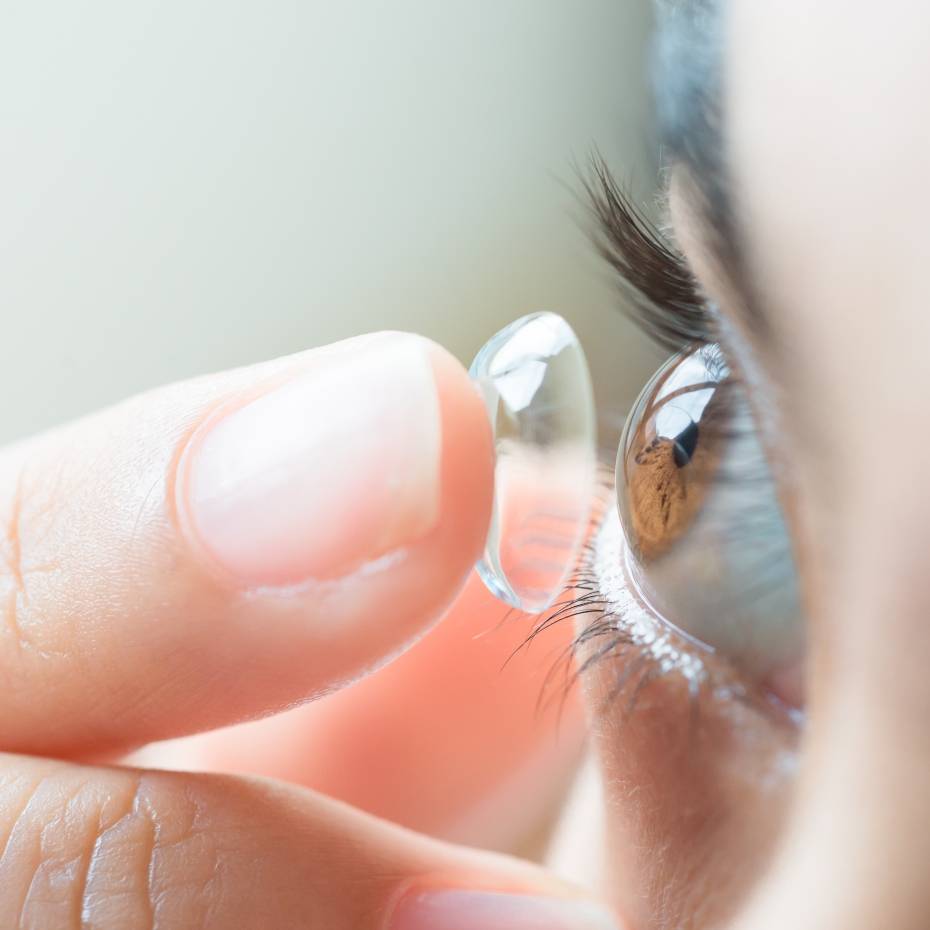
Contact lenses: what you need to know before you buy them.
Are you wondering what the best type of contact lens is for your specific vision, lifestyle, or budget? Then compare the advantages and disadvantages of specific types of contact lenses.
Are you seriously considering trying contact lenses?
Wearing contact lenses is a more flexible way to address your vision problem than ever before. Before taking this step, learn to understand the advantages and disadvantages of the most common types of contact lenses, as well as the basic rules for avoiding eye infections.
Soft contact lenses
Soft contact lenses are among the most popular types of contact lenses, both in Belgium and elsewhere in the world. Soft contact lenses can be used to correct various vision problems, such as:
- nearsightedness (myopia)
- farsightedness (hyperopia)
- blurred vision (astigmatism)
- the loss of near vision caused by older age (presbyopia)
Soft contact lenses adapt to the shape of your eye. They are comfortable to wear and usually stay in place well, making them a good choice if you often play sports or participate in an active lifestyle.
Soft contact lenses come in different types such as:
- Daily use: Daily use contact lenses are among the least expensive option. You wear the lenses during the day, and you take them out every night to clean and disinfect them. How long you can use this type of lens that you wear daily depends on the manufacturer. Usually, these are monthly lenses or weekly lenses.
- Disposable lenses or daily lenses: Disposable lenses or daily lenses are usually the most expensive option when it comes to lenses. You wear this type of lens during the day and remove it again in the evening. You don't have to clean them. You can consider wearing this type of lens when you only occasionally need contact lenses, when you cannot tolerate the products to clean them, and for all other types of interim solutions that are possible.
Make sure your lenses are the right size
If you have decided to try contact lenses, you should definitely consult your eye specialist or another specialist to have a thorough examination of your eyes and get the necessary advice on what kind of lenses you could possibly wear.
Be sure to follow up on the various examinations recommended by your eye specialist. It may be that you need to have additional examinations carried out, for example, a week later, a month later, six months later, or possibly a year later, and these are certainly not superfluous examinations.
Avoid eye infections
To reduce the risk as much as possible, you can use the following preventive measures:
- Ensure good hygiene. Washing, rinsing, and drying your hands, not thoroughly, before putting your contact lenses in or taking them out of your eye is more than recommended.
- Try to minimize contact with water. Remove your contact lenses before taking a bath, before swimming, or before taking a hot shower.
- Do not wet your lenses with saliva. Resist the temptation to put your lenses in your mouth to wet them.
- Pay attention to using products for contact lenses. Only use sterile products that are specifically made for the type of contact lenses you wear, so no water-based or home-made products. Always use a fresh solution to clean your contact lenses, and resist the temptation to reuse previously used products. Also, only open your new bottle of all-in-one liquid when the other one is empty. Such a bottle can be kept for a maximum of 3 months from the moment you open it.
- Rub and rinse your lenses. Gently rub the lenses when you clean them, even when you have chosen a cleaning liquid that is specifically 'no rub'.
- Keep a close eye on the expiry date. Do not use a product to clean your contact lenses if the expiry date has passed.
- Replace contact lenses on the date recommended by the manufacturer. It is not an unnecessary luxury to follow the manufacturer's guidelines regarding replacing your contact lenses. This way you can better prevent possible infections!
Even when you use contact lenses in a good way and take careful care of them, you as a contact lens wearer can suffer from dry eyes. If your eyes are red and inflamed, it is best to remove your contact lenses and put in eye drops. Also make an appointment with your ophthalmologist!
If your vision becomes blurred or if you experience eye pain, are sensitive to light, or have other problems, you should avoid your contact lenses and consult your eye specialist as soon as possible to start immediate treatment.